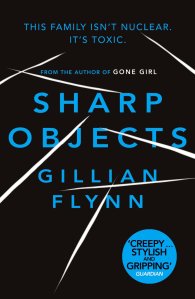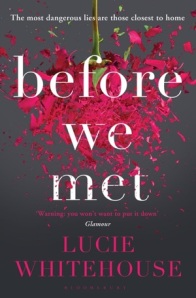Fiction – paperback; Harvill Secker; 250 pages; 2013. Translated from the Norweigan by James Anderson.
Norweigan writer Karin Fossum is best known for her Inspector Sejer series, but I Can See in the Dark, published last year, is a stand-alone novel.
Troubled loner
The story is told entirely through the eyes of 40-something Riktor, who has no family of his own and lives by himself in a small house on the outskirts of town.
He holds down a good job as a nurse in an elderly person’s care home, gets on well with his colleagues and finds ways to fill in his time between shifts. In other words, he leads a rather dull, uneventful, but otherwise productive life.
But all is not as it seems. Riktor is terribly lonely and desperately craves love and attention.
I don’t really understand my own situation, I don’t understand this sense of always being an outsider, of not belonging, of not feeling at home in the day’s routines. Forces I can’t control have torn me away from other people. I like being on my own, but I want a woman. If only I had a woman!
But as his narrative gently unfolds over a succession of short, crisply written chapters, we begin to learn that Riktor is not the quiet, gentle soul one might expect. He’s actually a rather troubled man, who doesn’t know how to properly interact with other people. He also claims he can see in the dark (hence the title):
I can see bushes and trees, buildings, posts and fences, I can see them all vividly glowing and quivering, long after dark. I can see the heat they emit, a sort of orange-coloured energy, as if they’re on fire. I once mentioned this to the school nurse when I was about ten. That I could see in the dark. She simply patted me on the cheek and then smiled sadly, the way you smile at an inquisitive child with a lively imagination. But once bitten twice shy: I never mentioned it again.
Perhaps the most troubling aspect of all is the way in which he is deliberately negligent in his job: he fails to give his patients the medicine they have been prescribed and he likes to torture them when he thinks no one is looking.
Of course, things catch up with him, and one day the police accuse him of killing a patient in his care. He is arrested and held on remand for an extended period of time.
But as ever with a Karin Fossum novel, there’s an unusual twist, because Riktor is caught in a dilemma: he definitely has blood on his hands, but the crime he has committed isn’t the one for which he’s been charged.
Disturbed man
The most intriguing aspect of the novel is the way in which Fossum puts you squarely in the head of Riktor, who is clearly simple-minded and a little bit odd. His morals are dubious and he lacks empathy, but he knows how to operate in society without drawing too much attention to himself. He is also clever enough to figure out what people are thinking and has learned how to manipulate them to get what he wants.
But at no point do you want to cheer him on: this is not a Patricia Highsmith character who is so bad he’s good; this is the type of person you know lives and breathes among us. Indeed, he quite often turns up on the news bulletins having murdered a friend or loved one because he didn’t get what he wanted.
I Can See in the Dark is not your average crime thriller. It’s not so much about what happened, but why it happened. By digging around in the mind of someone who hasn’t followed the conventions of socially acceptable human behaviour, Fossum tries to show us what makes him tick.
It might not be terribly fast-paced but it’s a low-key novel that shimmers with suspense throughout. It’s a brutally honest account of a man caught up in a world that he doesn’t understand and is a superb portrait of a psychologically damaged killer, one that is unflinching, thought-provoking and deeply unsettling.



